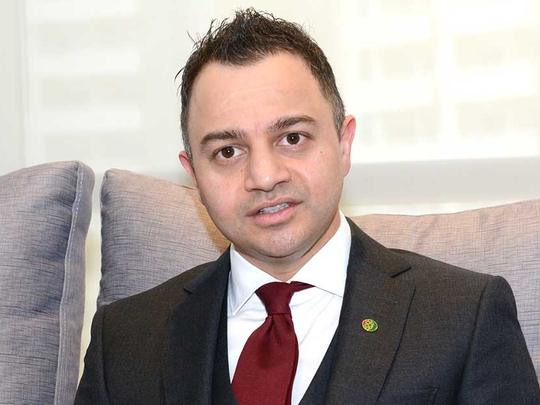
Dubai: Dubai Islamic Bank (DIB) is one of the few UAE banks that continue to report strong profits despite the squeeze on banking sector liquidity resulting from low oil prices, fiscal consolidation and slowing private sector demand for credit.
For the first half and the second quarter of this year, DIB largely met the analysts’ expectations and kept up with its standard guidance.
For the first six months of the year the bank reported a net profit of Dh2 billion, up 11 per cent from Dh1.8 billion in the same period in 2015.
For the second quarter of the year the bank made Dh928.9 million profits compared with Dh902 million in the corresponding period of 2015.
“We are strictly holding on to the core elements of our transformation strategy we adopted following the consolidation plan we implemented between 2008 and 2013. With a clean balance sheet and an integrated approach to growth, our exposures to various sectors of the economy are well balanced and we have been able to maintain strong asset quality despite some challenges in the economy,” Dr Adnan Chilwan, Group CEO of DIB told Gulf News in an interview.
Strong first half results were driven by higher revenues and declining impairment losses. Bank showed consistent improvement in asset quality with decline in non-performing loans (NPLs) and NPL ratio.
Dr Chilwan is not excessively worried about the challenges posed by the decline in oil prices and its impact on the economy and the financial services sector in the UAE.
“The UAE economy has been largely resilient to the oil price decline because of the strong fundamentals and relatively high level of economic diversification. Over the years the economy has proved its ability to find new opportunities in the face of challenges,” he said.
Withdrawal of deposits by governments and government related entities saw liquidity becoming scarce for some banks.
DIB with a very strong deposit base supported by robust growth in sticky customer deposits continue to have ample liquidity and lower cost of funds.
Results
In the first half of 2016 DIB’s customer deposits increased by 13 per cent to Dh125 billion from Dh110 billion at year-end 2015.
Current and savings account (CASA) book increased by 15 per cent to Dh51.3 billion compared with Dh44.5 billion in 2015. Investment deposits grew by 12 per cent during the first half of the year Dh73.3 billion from Dh65.5 billion as at end 2015.
Financing to deposit ratio of 87 per cent as of June 2016 compared to 88 per cent at the end of 2015.
Despite the challenging liquidity environment DIB is confident of double digit deposit growth.
“Certainly the market has become very competitive. But our reach to all segments of the market is expected to deliver consistent growth in deposits, especially CASA which is in excess of 40 per cent of our total deposits,” said Dr Chilwan.
He expects the current liquidity situation is not very serious for the banking sector except that it might result modest increase in cost of funds for some banks.
“Most banks in the country have been prudent in substituting funding sources when they saw the first signs of liquidity squeeze. The issue has been largely addressed,” he said.











